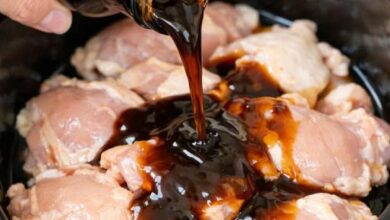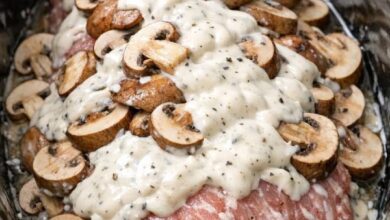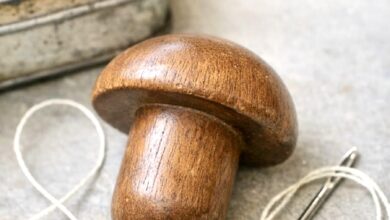Chef’s Clever Hack for Perfectly Peeled Hard-Boiled Eggs

Chef’s Clever Hack for Perfectly Peeled Hard-Boiled Eggs
Introduction
Hard-boiled eggs are a kitchen staple, but peeling them can be frustrating. Often, the shell sticks, leaving behind a patchy mess.
Chef’s clever hack makes peeling hard-boiled eggs effortless, giving you smooth, perfect eggs every time.
Say goodbye to wasted eggs and hello to perfectly peeled results for salads, snacks, or breakfast!
Ingredients
- Eggs (as many as you need)
- Water (enough to cover the eggs)
- Ice cubes or cold water for ice bath
- 1 teaspoon baking soda (optional, helps with peeling)
Instructions
-
Prepare the eggs: Place your eggs in a single layer in a saucepan. Add enough water to cover the eggs by at least 1 inch.
Optionally, add 1 teaspoon of baking soda to the water for easier peeling. - Boil the water: Heat the saucepan over medium-high heat until the water comes to a rolling boil.
-
Cook the eggs: Once boiling, cover the pan with a lid, turn off the heat, and let the eggs sit:
- 9–12 minutes for large eggs (adjust for smaller or larger eggs)
-
Ice bath: Transfer the eggs immediately into a bowl of ice water. Let them sit for at least 5–10 minutes.
This stops the cooking process and helps separate the membrane from the egg white. -
Peeling hack: Gently crack the eggs all over by tapping on a hard surface. Roll the egg lightly to loosen the shell.
Peel under running water or submerge in a bowl of water to make removing the shell smoother.
Description
This method uses a combination of careful cooking, an ice bath, and a slight chemical trick with baking soda to make the eggshell slide off easily.
The result is perfectly smooth, fully intact hard-boiled eggs with minimal effort—ideal for salads, deviled eggs, or a quick protein snack.
Tips
- Use slightly older eggs if possible; fresh eggs are harder to peel.
- Always cool eggs immediately after boiling to prevent overcooking and gray-green yolks.
- Rolling the egg gently before peeling loosens the membrane for a cleaner peel.
- Running water or peeling in water helps wash away tiny shell fragments.
Common Mistakes to Avoid
- Overcooking eggs: causes rubbery whites and gray yolks.
- Skipping the ice bath: eggs will continue cooking and become harder to peel.
- Using boiling water directly for fresh eggs: often leads to sticking shells.
Enjoy
Serve your perfectly peeled hard-boiled eggs as a quick breakfast, a salad topper, or for snack prepping.
With this clever hack, peeling eggs becomes hassle-free and satisfying every single time.



